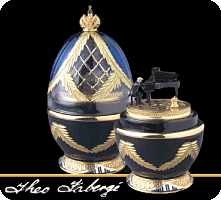“Best Musical Score (By a Laptop)”
The New York Times
June 26, 2004
By James Barron
Being a judge in a student piano competition can be dicey. A judge’s decision making can be tainted by any number of things – subjective reactions, or even, one anxiety-laden line of thinking goes, being unlucky enough to play at the beginning of a round and be forgotten by the end.
John A. MacBain swooped down on the Second New York Piano Competition yesterday with an answer to all that. His laptop.
It holds a program that he has used to score the International Violin Competition of Indianapolis and the Van Cliburn International Piano Competition in Fort Worth. Yesterday, in less than an hour in a wood-paneled room at the Manhattan School of Music, where the competition has been going on all week, he turned the numbers on the judges’ score sheets into results.
Dr. MacBain is neither a judge nor a pianist, but rather the scoring guru of music contests. This is a sideline – his day job is as a research engineer in Indiana with the Delphi Corporation, the huge automotive parts supplier. He maintains that scoring is fun for someone whose doctorate is in mathematics but less than thrilling for everyone else. “Watching this is like watching grass grow,” he declared as he slipped off his suit jacket and switched on the laptop.
Dr. MacBain’s system does not involve dropping the highest and lowest scores, the antidote to the old and much-maligned judging system in Olympic figure skating. It does depend on calculating statistical measures like standard deviations, means and medians – something the laptop can toss off like an arpeggio.
“The biggest thing that this system overcomes is the traditional jury approach, which often has come down to politics or the strongest-willed juror being able to sway others,” he said. “This keeps it so that it’s relatively independent, with each juror’s scoring having an equal weight as any other juror’s.”
So, when the last of the 14- to 18-year-old pianists had finished the last of their pieces, the six judges did not deliberate. They did not perform a music-world remake of “Twelve Angry Men” (in this case, four men and two women, all well-known pianists with long experience in competitions). They simply handed in their score sheets and let Dr. MacBain go to work.
This was a relief to the jurors. “It’s always a burden,” said the chairman of the jury, Abbey Simon. “What I love, he may not like” – he pointed at one juror, André-Michel Schub, and then at another, Susan Starr – “and what she likes, I may not like.”
Dr. MacBain, 55, began working on scoring music competitions 14 years ago, using the programming language Fortran. He has long since switched to Excel as a platform for programs that crunch the judges’ numbers according to his algorithms.
That may sound high-tech, but in practice his system proved to be only medium-tech. He did not require the judges to fill out their score sheets with No. 2 pencils so he could scan them directly into his computer. The data entry was disarmingly old-fashioned: One of the organizers of the competition, Melvin Stecher, read the numbers off the score sheets aloud, round by round, judge by judge, contestant by contestant. Dr. MacBain read each number back as he typed it in. The other founder of the competition, Norman Horowitz, looked over their shoulders to make sure that there were no typographical errors.
Once or twice, an entry on the score sheets was hard to read – was that an 8 or a 9? Mr. Stecher and Mr. Horowitz had already checked with the judge in question to find out the correct number.
“Your jurors are better than most,” Dr. MacBain said. “Usually, there’s someone who forgets to sign their ballot.”
Long before the competition began, the jurors had received a memo from Dr. MacBain asking them to grade the performances on a scale of 1 to 25 and to give the “average performer” a score “somewhere in the middle of the range, thus around 12.” The memo said each judge’s top score would be the highest number he or she awarded. “If your top score is 17, then it is 17,” the memo said.


